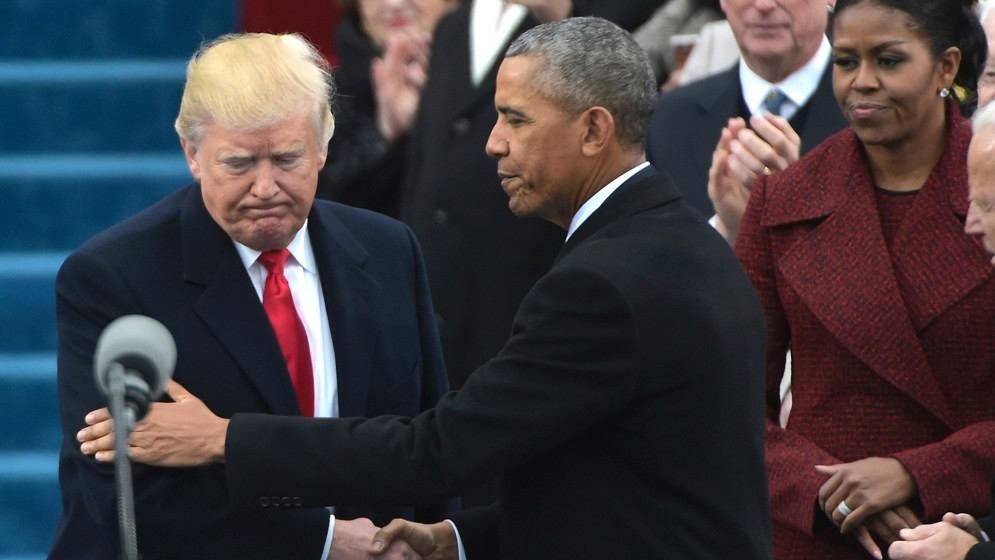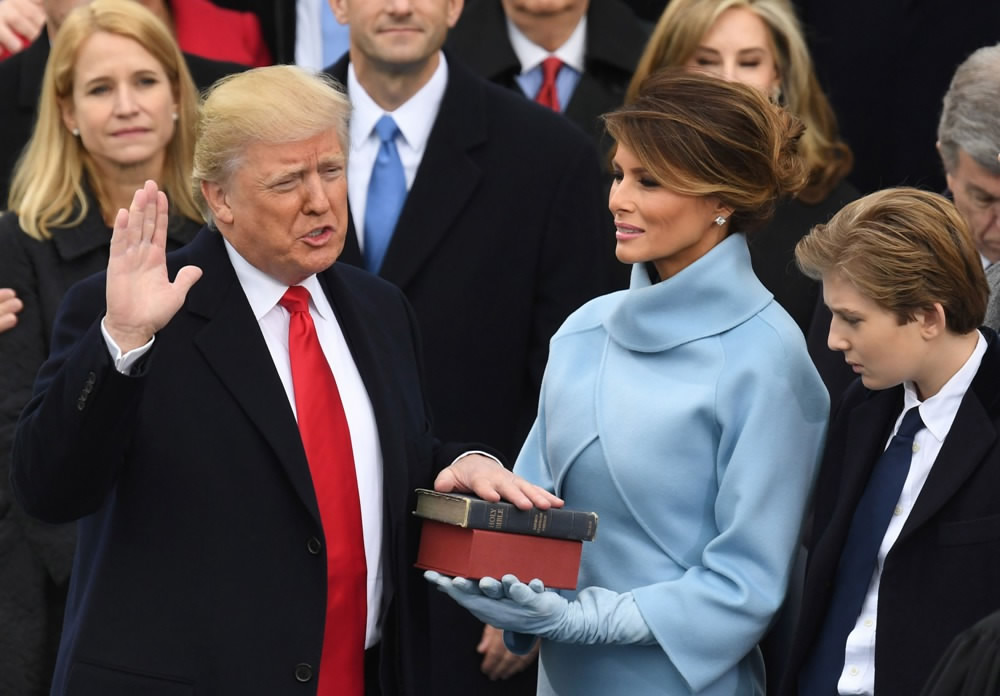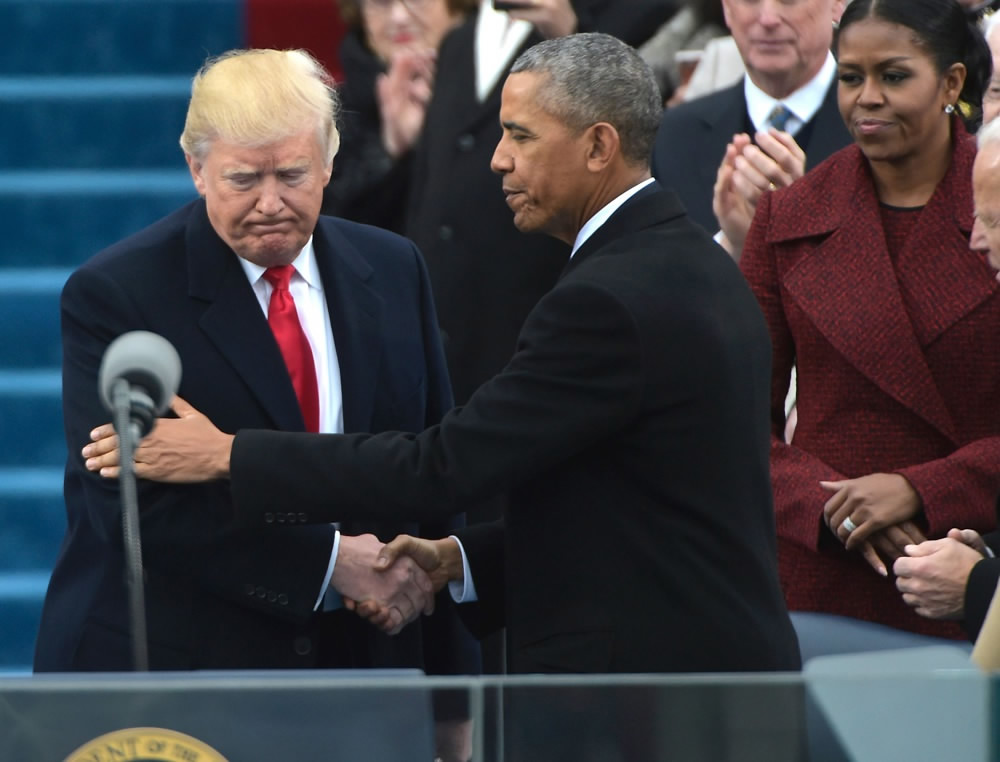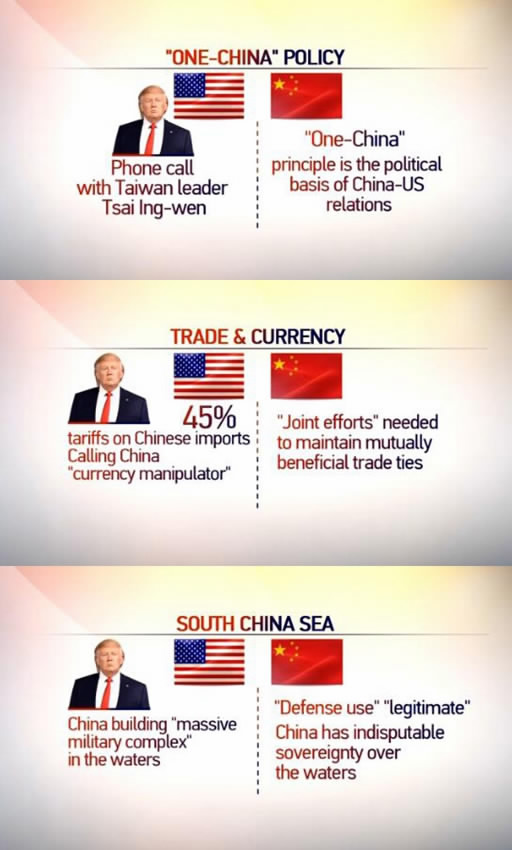
Politics
21:35, 22-Jan-2017
Opinion: President Trump is making the world nervous
Updated
10:36, 28-Jun-2018

Guest commentary by Yu Xiang
On January 20, 2017, a rainy day, Mr. Donald Trump was sworn in as the 45th US president.
Compared with the two-million-strong audience attending President Obama’s inauguration ceremony in 2009, there was only a fraction of that number attending President Trump’s inauguration.

US President Donald Trump takes the oath of office as his wife Melania holds the Bible. /CFP Photo
US President Donald Trump takes the oath of office as his wife Melania holds the Bible. /CFP Photo
Deep concerns about President Trump’s future policies haunt the sky of Washington DC. People still doubt that Mr. Trump, who has no prior experience in public service or army experience, has the abilities to put his propositions into practice. The world is holding its breath to see how President Trump can “Make America Great Again”. If he fails, he may become the latest “outsider” to find himself brought to heel by Washington.
So in his inaugural address, Trump reached out to different parts of society and tried his best to eliminate doubts.
Trump continued to promise plans to develop the US economy. But until now, he hasn’t given any detailed information. US stock markets soared following his election, but are now set to cool, letting the recent market rally and run of economic statistics seem like a sugar high.

Barack Obama (R) greets Donald Trump as he arrives on the platform at the US Capitol in Washington DC on January 20, 2017, before his swearing-in ceremony. /CFP Photo
Barack Obama (R) greets Donald Trump as he arrives on the platform at the US Capitol in Washington DC on January 20, 2017, before his swearing-in ceremony. /CFP Photo
Trump called for unity of the whole nation and unity of his party. But deep divergence between him and his Republican Party on the issue of whether the Russian government intervened in the presidential election indicates that bringing about unity is still a difficult mission.
Further, Trump sent definitely hawkish signals on international affairs. He repeated he would get rid of ISIL. He put up two rules: “Buy American and Hire American”. “We must protect our borders from the ravages of other countries making our products, stealing our companies, and destroying our jobs. Protection will lead to great prosperity and strength,” he said.
Trump wishes to use this hawkish policy to shake up his approval rate and divert Americans’ dissatisfaction with him. Trump’s approval rate is currently less than 50 percent, which is a first for any president entering office since the beginning of national polling in 1940s, according to Gallup.
His two rules, “Buy American and Hire American,” are the most xenophobic heard since World War Two, not only increasing the concerns of China and Russia, but the US’s traditional allies are also feeling its aggressive ambitions.
In his inaugural address, Trump didn’t hold back against China either. Before this, Trump and his team had already tested China’s limits, from Trump’s phone call with Taiwan’s leader after his election, to his threats to revisit the One China policy accepting the mainland government’s dominion over the island. Trump’s Secretary of State nominee, Rex Tillerson, also vowed in his confirmation hearing to block China from further developing islands in the South China Sea.

Donald Trump has tested China’s limits on a number of issues. /CGTN
Donald Trump has tested China’s limits on a number of issues. /CGTN
Trump’s threats to impose a high tariff on goods imported from China seem more credible under current situations. Sino-US relations, especially trade and economic relations, are facing big challenges and difficulties.
Following the famous saying that “the only thing necessary for the triumph of evil is for good men to do nothing”, former US secretary of the Treasury and Harvard University President Emeritus Lawrence Summers has called for more action to ensure Trump’s policies go in the right direction.
Maybe after several clashes with China, the Trump administration’s learning curve will have improved. It will finally realize that some issues such as sovereignty are not negotiable, and cannot be used as bargaining chips in his “America First” policy.
(Yu Xiang is a Research Fellow and Director of American Economic Studies at the China Institutes of Contemporary International Relations (CICIR) at Harvard University. He is also a 2014 National Outstanding Young Scholar. The article reflects the author's opinion, not necessarily the view of CGTN)

SITEMAP
Copyright © 2018 CGTN. Beijing ICP prepared NO.16065310-3
Copyright © 2018 CGTN. Beijing ICP prepared NO.16065310-3